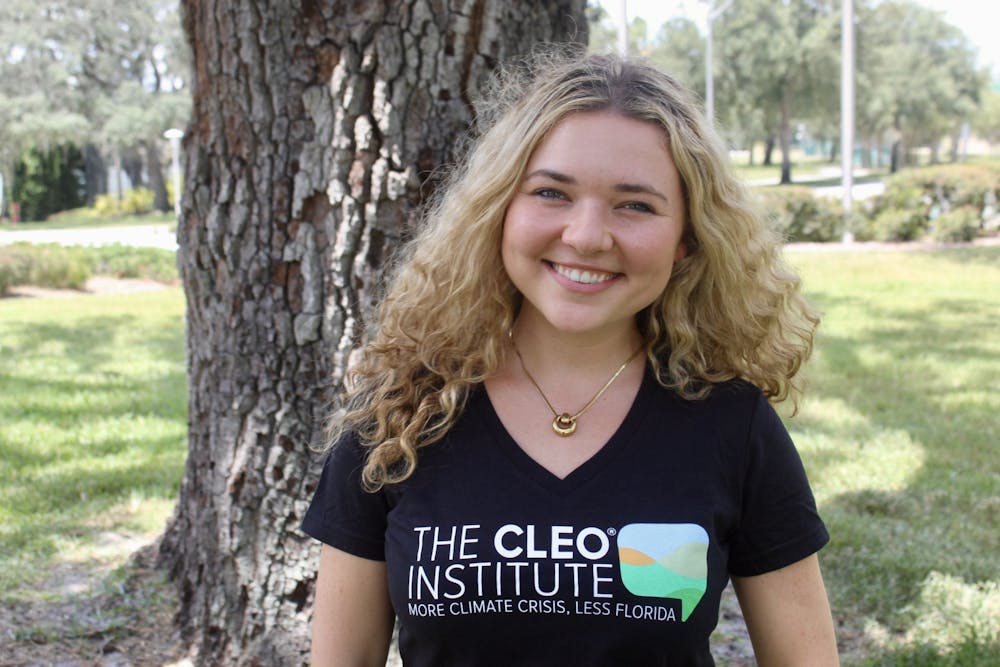On Aug. 4, UF closed the Office of Sustainability. As a UF sustainability studies student and Gainesville lead organizer for genCLEO, a youth-led climate justice organization, I am both concerned and appalled by this decision. I have seen firsthand how coordinated climate action and resiliency efforts transform communities. Now, UF is dismantling the very office that makes such progress possible.
For nearly two decades, the Office of Sustainability has been at the heart of campus climate action: limiting emissions through its Climate Action Plan, setting green building standards and providing students with outreach opportunities. Without it, UF risks stalling the progress being made to reduce the dangerous pollution warming our world.
UF is also abdicating its role in climate leadership — depriving students and the city of Gainesville of a vital environmental resource. The implications are profound for a university in a state currently experiencing the impacts of climate extremes.
Gainesville is already seeing above-average temperatures, extended periods of heavy rainfall and the constant threat of tropical storms and hurricanes. Every dollar spent on resiliency and mitigation saves both money and lives. The U.S. Chamber of Commerce reports that every $1 invested in resilience and disaster preparedness saves $13 in economic impact, damage and cleanup costs after the event. Sustainability isn’t just an environmental priority, it’s economic common sense.
In the university’s statement, a UF spokesperson said the decision was about “fiduciary responsibility” and being a steward of taxpayer dollars. But sustainability is inherently budget efficient: It’s cutting waste before it costs us and preventing damage before disaster exhausts our resources and devastates our communities. Hurricane Helene barely missed Gainesville. So why dismantle the very office designed to save money, energy and lives? Why during hurricane season? Why now?
All across Florida, public universities are facing new state audits and “efficiency” reviews that go beyond tightening budgets. Gov. Ron DeSantis directed the Florida Department of Government Efficiency to sort through six years of records, flag “unnecessary” programs and cut initiatives determined to be ideological. Yet the escalating weather extremes we face are not a matter of ideology. They are reality.
Sustainability is ultimately worth the investment, and it pays dividends well outside of the
classroom. A strong sustainability program lowers operating costs through energy efficiency,
protects university infrastructure from climate-related damage and helps safeguard public health. To cut a program under the guise of “efficiency” is to ignore both the economic and ethical reality. The costs of inaction will be much greater than the cost of maintaining the office.
While UF may hope to live in a world without a climate crisis, hope is not a plan. Rather, we
must persist on our path to progress. Now is the time to learn, educate and advocate for
sustainability, because climate change is not a partisan issue. It's a matter of life, health and justice. If UF won't stand up, then we will, and we'll be loud enough that they cannot ignore us anymore.
The next UF Board of Trustees meeting is Dec. 4, but we cannot wait to act. Join genCLEO UF and follow us for ongoing updates on campus policy changes, involvement opportunities and ways to take action for climate justice.
Abigail Trachtenberg is a 19-year-old UF sustainability studies sophomore and the Gainesville lead organizer for genCLEO, a youth-led climate justice organization.






